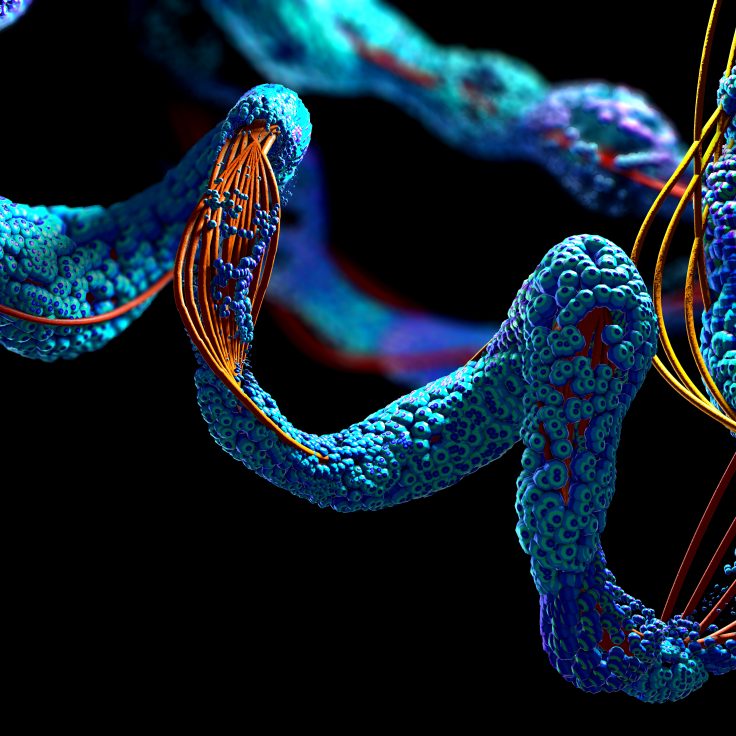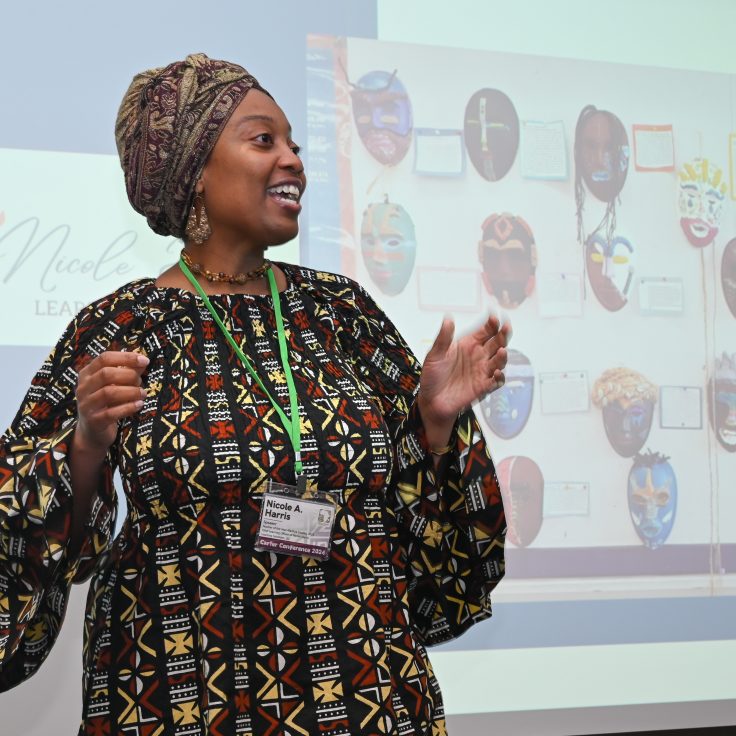
Newly Funded Psychology Research Looks to Improve Alzheimer’s Navigation Impairment
UF researchers chart a new course for our understanding of age-related navigation problems
For those diagnosed with Alzheimer’s disease, difficulty navigating is often one of the first challenges posed by the progressive condition. Many find themselves becoming disoriented or wandering into unfamiliar places, taking a toll not only on Alzheimer’s patients themselves but also on their caregivers and loved ones.
Two new research projects led by UF Department of Psychology faculty seek to address this issue by studying how the brain’s ability to create mental “maps” changes due to aging and age-related neurodegenerative disease. The projects were recently awarded more than $867,000 through grants from the Florida Department of Health and the National Institutes of Health’s National Institute on Aging. The funding will support these efforts to better understand decline in spatial navigation skills and, eventually, improve and support them.
“Spatial navigation is inherently about the quality of life, safety, and independence of older adults and those with Alzheimer’s disease,” said STEVEN WEISBERG, an assistant professor of psychology and principal investigator on both projects. “It is also one of the first cognitive traits that tends to fail during aging and the progression of Alzheimer’s disease. Getting a crisp understanding of this decline could allow us to more quickly and effectively diagnose and intervene.”
While the two projects approach related topics from different angles, both bring together Weisberg’s expertise in spatial navigation and psychology professor NATALIE EBNER’s in aging.

Building Better Tools for Navigation
In January, the National Institutes of Health’s National Institute on Aging (NIA) awarded Weisberg a five-year, $619,849 K Award, intended to support promising early-career faculty in their research. Ebner is Weisberg’s primary mentor on the project, which also serves as a new collaboration spanning three UF colleges: Professors Mingzhou Ding and Steven DeKosky, of the Wertheim College of Engineering and the College of Medicine, respectively, serve as co-mentors on the project.
The project looks to better understand how the brain constructs spatial information from maps, directions, arrows, signs, and other navigation cues. From there, the research will determine how the brain’s interpretations of these signals change over the course of aging.
Spatial navigation is inherently about the quality of life, safety, and independence of older adults and those with Alzheimer’s disease.
—Steven Weisberg, Assistant Professor of Psychology
Weisberg and his collaborators will tackle this question through a combination of cognitive neuroscience, magnetic imaging resonance techniques, and behavioral analysis of healthy young and older adults along with patients with mild cognitive impairment.
“Very little is known about the way these representations get constructed. The more we know about what happens in the brain when you look at a map or when you receive directions, the more effective we can be at designing tools to help navigation,” Weisberg said. “Humans are nothing if not excellent tool builders.”
The K Award, Ebner said, is a particularly strong sign of support from the NIA as it is the first of its kind the UF Department of Psychology has received in at least a decade.
Stimulating the Brain’s Navigation Center
The Florida Department of Health’s Ed and Ethel Moore Alzheimer’s Disease Research Grant Program awarded $247,613 to a closely related research project with Weisberg and Ebner as co-principal investigators, and Dawn Bowers from the College of Public Health and Health Professions as co-Investigator. Confronting age-related cognitive decline is especially pressing in Florida, where the median age is three years older than the country’s as a whole.
The project aims to find links between navigation behaviors and changes in brain activity during aging. As people grow older, the hippocampus, a region of the brain heavily involved in spatial navigation, becomes less active. The researchers want to identify which navigation skills are impaired by this shift. They’ll then determine whether these abilities can be improved by stimulating the hippocampus with a non-invasive technique called Real-Time Functional Magnetic Resonance Imaging (rtfMRI) Neurofeedback. This advanced training approach allows the researchers to directly probe the link between behaviors and brain activity in real time as research subjects are navigating through virtual space.
“You can really understand the connection between behavior and the brain with this technique,” Ebner said. “You can stimulate the brain non-invasively, activating one specific brain region, for example, that one believes to be crucial for the behavior under study. Through this approach, you can causally infer that if behavior changes, it’s because brain activity in this region was changed. It’s very exciting.”
You can really understand the connection between behavior and the brain with this technique.
—Natalie Ebner, Professor of Psychology, on rtfMRI Neurofeedback
The work will also examine whether the hippocampus-based navigation impairment is more pronounced in people who carry a genetic marker associated with increased risk for Alzheimer’s disease. One goal of the project is to demonstrate that stimulating people’s hippocampus while they navigate, as a sort of “hippocampal navigation training,” will help to counter spatial navigation impairments that occur with aging and neurodegenerative disease.
For more information about Weisberg’s and Ebner’s research, visit the websites for the SCANN Lab and the Ebner Lab.
Research reported in this publication was supported by the National Institute On Aging of the National Institutes of Health under Award Number K01AG070333. The content is solely the responsibility of the authors and does not necessarily represent the official views of the National Institutes of Health.


